10 of the best travel companies committed to climate action
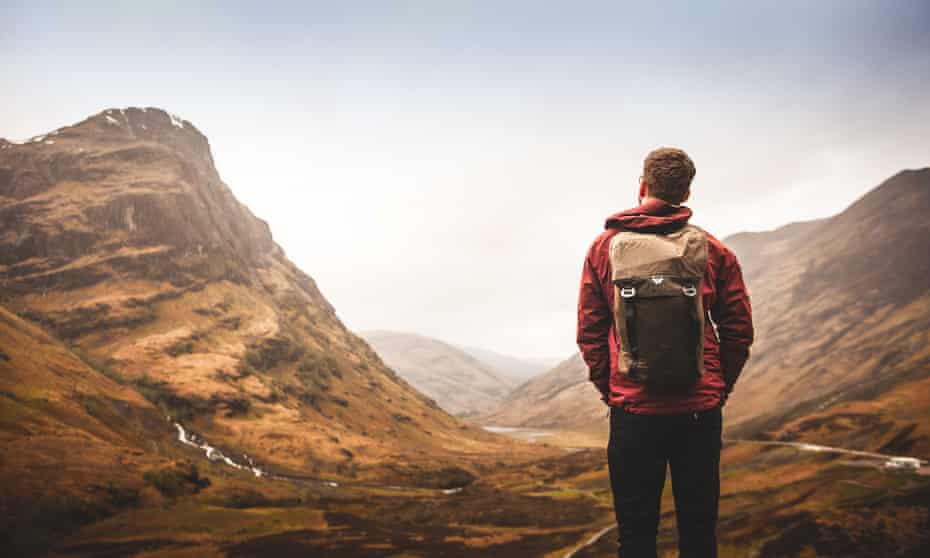
These holiday firms walk the talk when it comes to minimising their carbon footprints and promoting biodiversity
Highlands tours finance tree-planting and rural projects
Rather than batting the carbon problem back to customers, Scottish minibus tour operator Rabbie’s taxes itself GBP10 for every tonne of carbon its trips produce. Since 2008, this has raised GBP120,000 for community and environmental projects, voted for by the team. Projects include the Staffin Community Trust, a charity improving economic prospects for the Gaelic heartlands of Skye; Rabbie’s team has provided hands-on and financial help to build walking paths and plant trees. Rabbie’s prides itself on meeting the balance between the carbon efficiency of coach travel but the nimbleness of self-drive – accessing rural communities that need income from tourism. An extensive environmental and leave-no-trace policy includes modern fuel-efficient vehicles, litter-picking along the way, and washing minibuses where runoff is controlled.
Rabbie’s five-day Highland Explorer travels through Skye and the far north of Scotland from GBP249 per person; rabbies.com
Walking in the Apennines, Italy
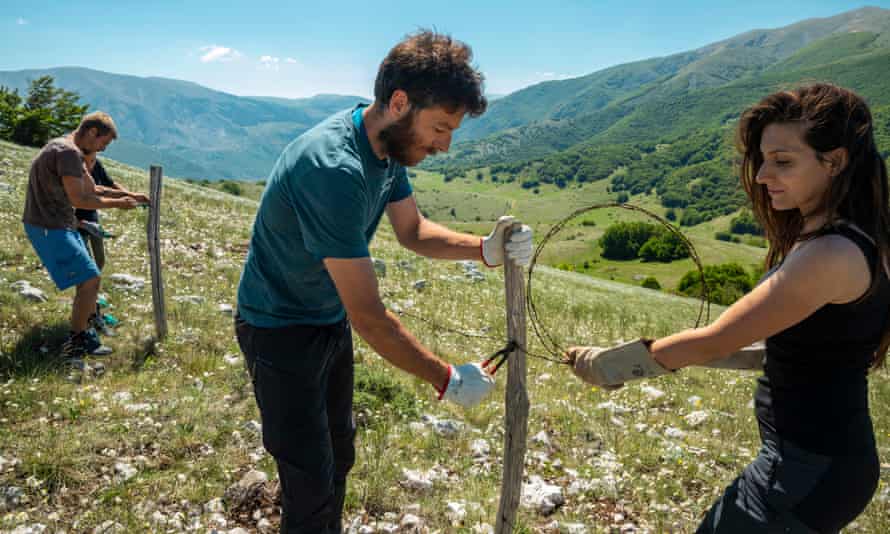
As part of its growing offering of nature-based experiences close to home, Exodus has launched a new walking tour to see conservation in action with rewilding expert Mario Cipollini in the Italian Apennines. The trip is a manifestation of Exodus’s climate plan, Planet Promise, which includes a partnership with Rewilding Europe and a goal to be nature net positive by 2024. For every customer that books a trip with Exodus (regardless of destination), 100 sq metres of Italian Apennines land will be rewilded. The plan also aims to slash carbon emissions in half by 2030 by increasing train travel, closer to home trips, and plant-based food options.
The six-day Rewilding the Apennines tour costs from GBP2,099 per person; exodus.co.uk
Brecon Beacon hotels Stump Up for Trees
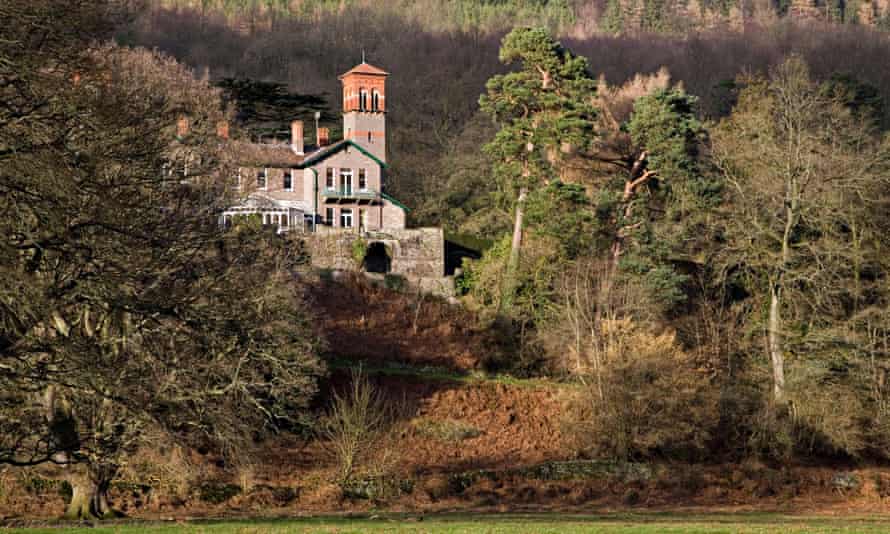
Room for Trees was the idea of James Suter, owner of the Gliffaes Hotel, a 13-hectare (33-acre) wildlife haven and arboretum on the River Usk in the Black Mountains. The hotel donates GBP1 for every night booked to Stump Up for Trees — a small charity that has set out to plant over 1m trees across the Welsh uplands. So far, Gliffaes, along with the Angel Hotel in Abergavenny, has raised more than GBP10,000. The money will go towards the Stump Up for Trees pilot project, planting 130,000 native broadleaf trees on common land at Bryn Arw. It’s the first tree plant on common land in Wales and is led by seventh-generation Black Mountains farmer Keith Powell.
Double rooms at Gliffaes Hotel from GBP165; gliffaeshotel.com
Low carbon trips, Scotland and beyond
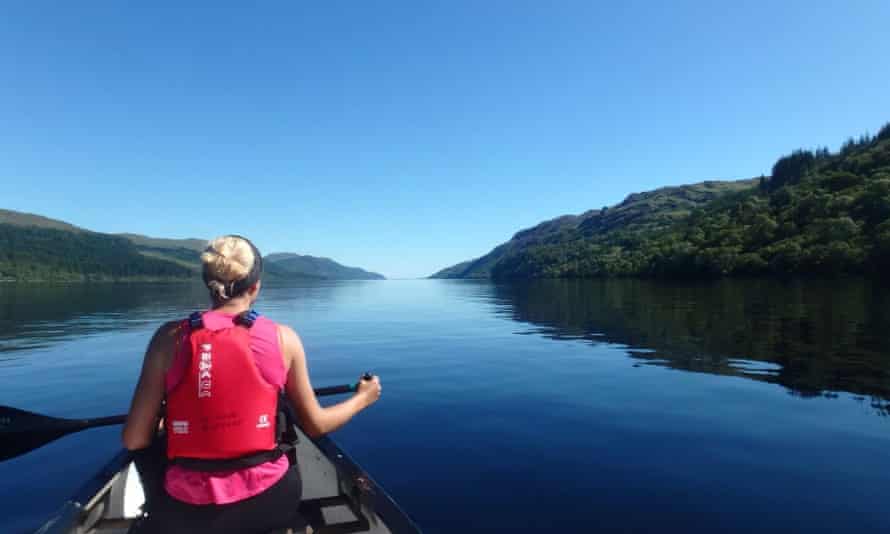
Much Better Adventures‘ co-founder Alex Narracott has spent a day a week since 2019 establishing Tourism Declares a Climate Emergency — a platform inspiring climate action across the travel industry. “The tourism industry had no clear, unified commitment to climate actions that aligned with scientific consensus; we wanted to change that,” Alex tells us. Today, Tourism Declares has more than 400 signatories spread across 60 countries; the initiative has shaped the Glasgow Declaration, calling on the tourism industry to reach a 50% reduction by 2030 for Cop26. Much Better Adventures’ carbon labelling methodology is open source, so other companies can refer to or build on it. Alex says: “Our trips are already low carbon, but the labelling has given us a fantastic way to engage with suppliers and reduce even further.”
One of Much Better Adventures’ lowest carbon trips is a four-night, 100km canoe expedition across Scotland from GBP590 per person; muchbetteradventures.com
Saving oak trees with Canopy & Stars
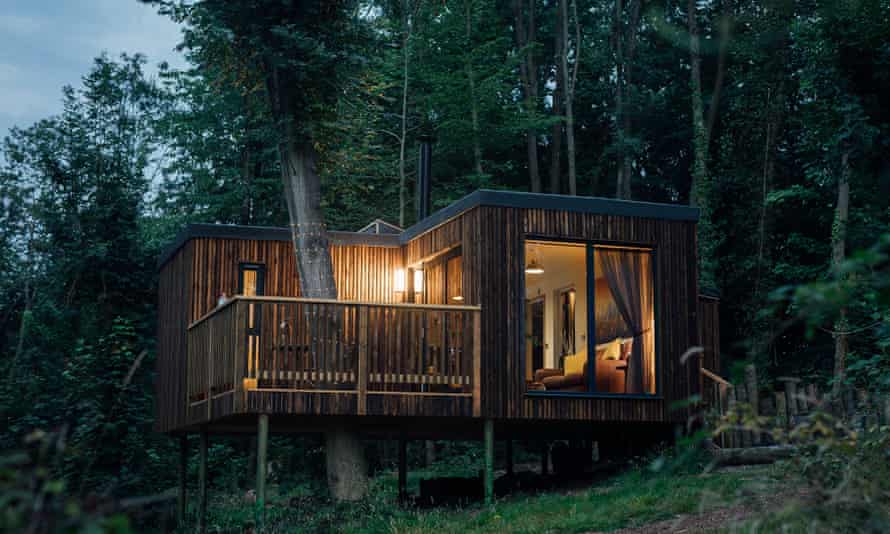
Majority employee-owned and recently awarded the Best for the World B Corp in the Workers category, Canopy & Stars owner Sawday’s is renowned for social sustainability. Since 2019, the business has also committed to climate action aiming to plant 1m trees by 2025 with rewilding charity TreeSisters to revive habitats across the tropics while creating local jobs (a tree is donated for every booking). Closer to home, the Sawday’s charitable trust has also purchased and planted 8,000 trees from Save the Oaks — a campaign to save 750,000 oak saplings due to be destroyed after a failed government planting scheme. Work to reduce carbon emissions is under way, including initiatives such as partnering with Ecotricity to offer owners the best rates and ensuring that 95% of suppliers reach high environmental standards.
Save the Oaks saplings have been planted at Rookery Woods, Herefordshire, which has a treehouse for two from GBP182 per night; canopyandstars.co.uk
Tour operators race to create rail itineraries
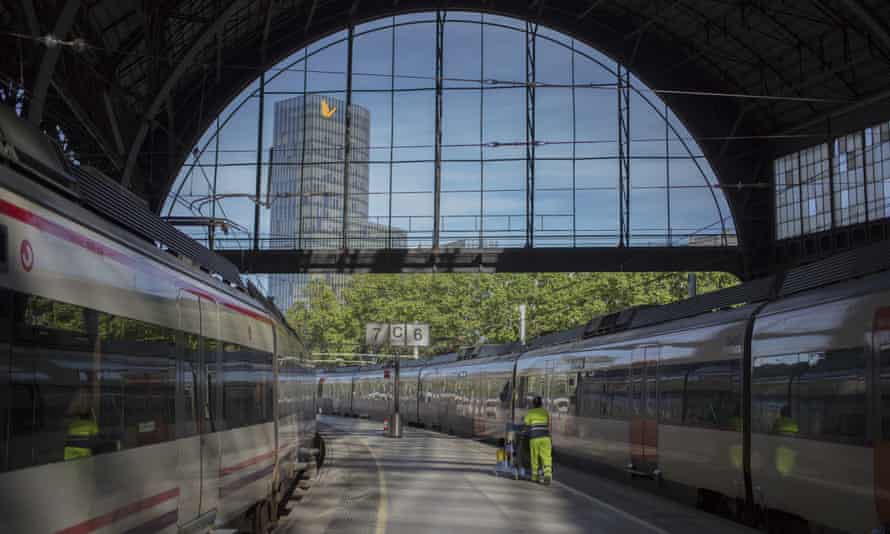
Flight-free travel is going mainstream, with many tour operators building rail itineraries to slash carbon emissions. The latest is Discover the World, which has launched 13 flight- and car-free trips to the Mediterranean, Scandinavia, the Alps, and even the Arctic. Explore! (which has recently partnered with Rewilding Britain as part of its climate action plan) has two new London2 trips – one to Poland via Berlin and one to Istanbul, while flight-free operator Byway has partnered with Mossy Earth to plant trees in the Scottish Highlands when anyone refers a friend. Pura Aventura, a B Corporation and one of the first UK operators to label every trip including flights, has created a series of no-fly holidays to Spain. Responsible Travel, which sells trips run by other companies and local partners, is creating more rail itineraries and removing trips that include flights of less than one hour.
Responsible Travel’s trips include a seven-day London to Croatia break from GBP950, responsibletravel.com.
AliKats Mountain Holidays Greener skiing trips, Alps
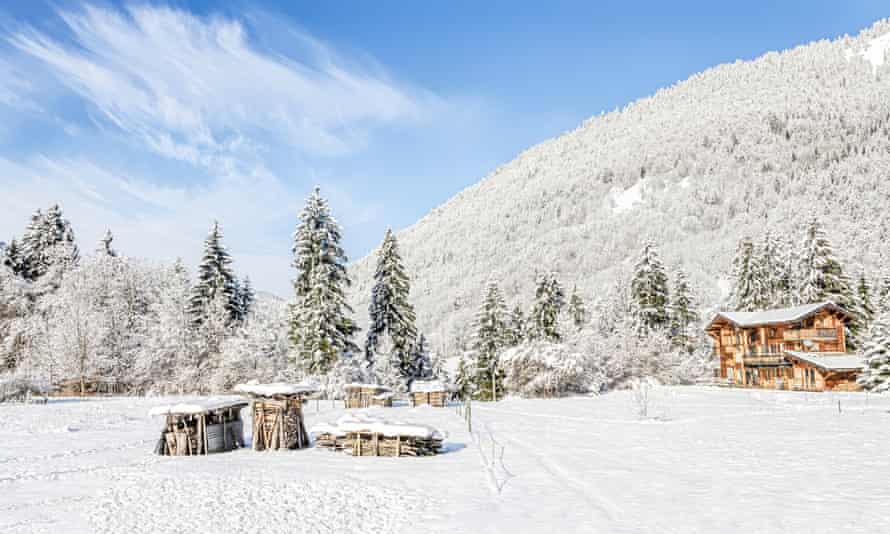
Skiing is hardly synonymous with low-impact travel, particularly as Europe’s most-loved glaciers increasingly bear scars of the climate crisis. Morzine-based AliKats Mountain Holidays, however, is trying to tackle the climate crisis from every angle. Part of the Tourism Declares a Climate Emergency movement, owners Al and Kat draw attention to the fact that snow cover is predicted to shrink by 35% by 2035. To achieve the goal of net zero carbon by 2022, AliKats’ chalets are powered by 100% renewable energy, mainly derived from river-fed dams rather than more harmful reservoir-fed dams. Menus are less meat-oriented, and a fleet of electric vehicles moves guests around the resorts. Rail travel is encouraged, suppliers are local where possible, and a permaculture garden will help the business adopt a circular food economy.
Chalet de l’Ange sleeps 14 and costs from GBP656 per person for one week, including five nights catering; alikats.eu
Regreening and sustainable homes, Cotswold/Dorset
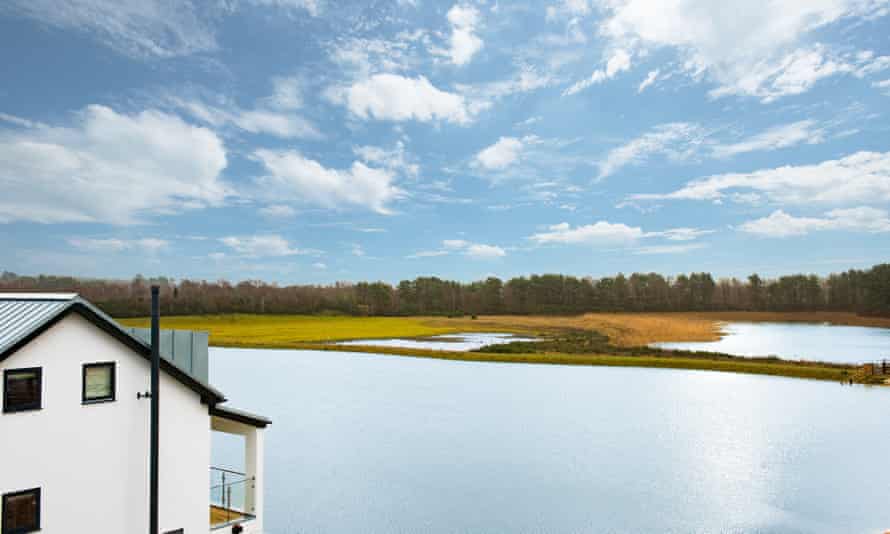
Habitat First is no run-of-the-mill development company. Established by the Paxton family 25 years ago, it builds eco holiday homes on formerly abandoned sites, including an old quarry at Silverlake, Dorset. Reviving natural habitats is central to the company’s mission, overseen by an onsite ecologist Dr Phoebe Carter. “We’re recreating lost habitats at both a micro-level as well as on a large scale,” she says. “Work to create our 90-hectare Biodiverse Heart is well under way at Silverlake, with a range of islands built to suit a variety of waterbirds, new lowland heathland planting, and lots of tree planting.” Both Silverlake and Lower Mill Estate (in the Cotswolds) were the first in the country to be accredited “Excellent” under the Building With Nature accreditation scheme.
Habitat Escapes offers a three-night stay self-catered at Water Garden 9, Cotswolds, sleeping eight from GBP102 per person ; habitatescapes.com
‘Holiday firms must move beyond offsetting’
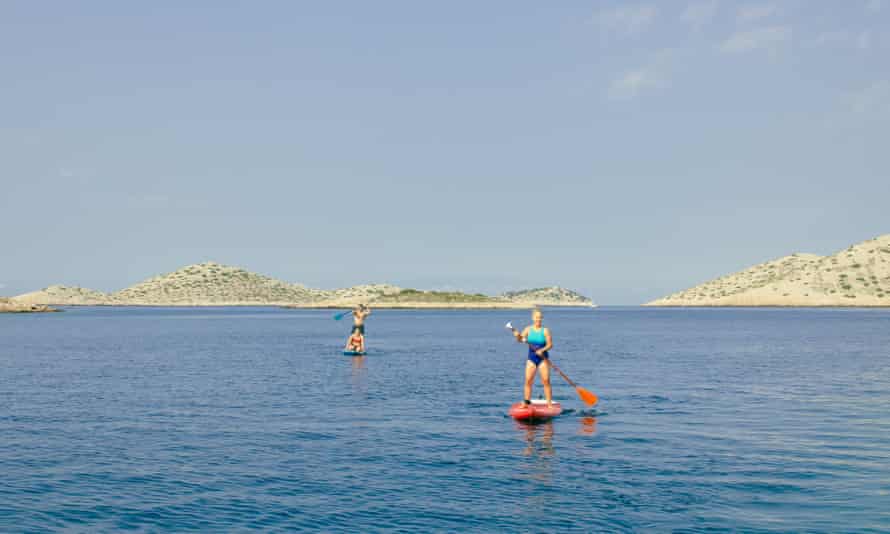
Intrepid has been carbon neutral since 2010. In 2020, it also became the first tour operator in the world to get verified science-based (in line with a 1.5 degree future) climate targets, which means independent experts have approved its business-wide carbon reduction plan. Funding natural carbon sinks has played a significant role; since 2019, the Intrepid Foundation has helped raise A$600,000 (GBP328,000) to develop Australia’s first offshore seaweed project and is now donating A$80,000 to Blue Carbon Lab’s work restoring coastal wetlands outside Melbourne. However, reflecting on a move towards decarbonisation, launching more domestic trips and removing all flights under 90 minutes, CEO James Thornton recognises that “as an industry, we must move beyond offsetting.”
Intrepid’s five-day Sibenik and the Kornati Islands in Croatia trip was developed in partnership with the IUCN to support nature conservation and costs from GBP830 per person; intrepidtravel.com
Green dining is the future, North Yorkshire Raithwaite Sandsend
Over the last few years, Toby Hunter and sons Max and Ollie have breathed a new, greener lease of life into Raithwaite Sandsend hotel and spa, on a 19th-century estate between coast and moors in North Yorkshire. As MasterChef finalist and former owner of the Wheatsheaf in Chilton Foliat, Wiltshire, Ollie knows a thing or two about sustainable dining, and food has led Raithwaite’s green approach. Redesigned menus offer reduced meat and place vegetarian options at the top, which has increased their popularity. Produce is 100% seasonal and organic, and the team are working towards sourcing 80% of produce from a 30-mile radius – a new series of onsite kitchen gardens and polytunnels will help. A self-sustaining forest garden, including 50 fruit trees, is also on the way.
Double rooms at Raithwaite Sandsend from GBP140; raithwaitesandsend.co.uk
Holly Tuppen’s book, Sustainable Travel: The Essential Guide to Positive-Impact Adventures, is published by Quarto (GBP18)